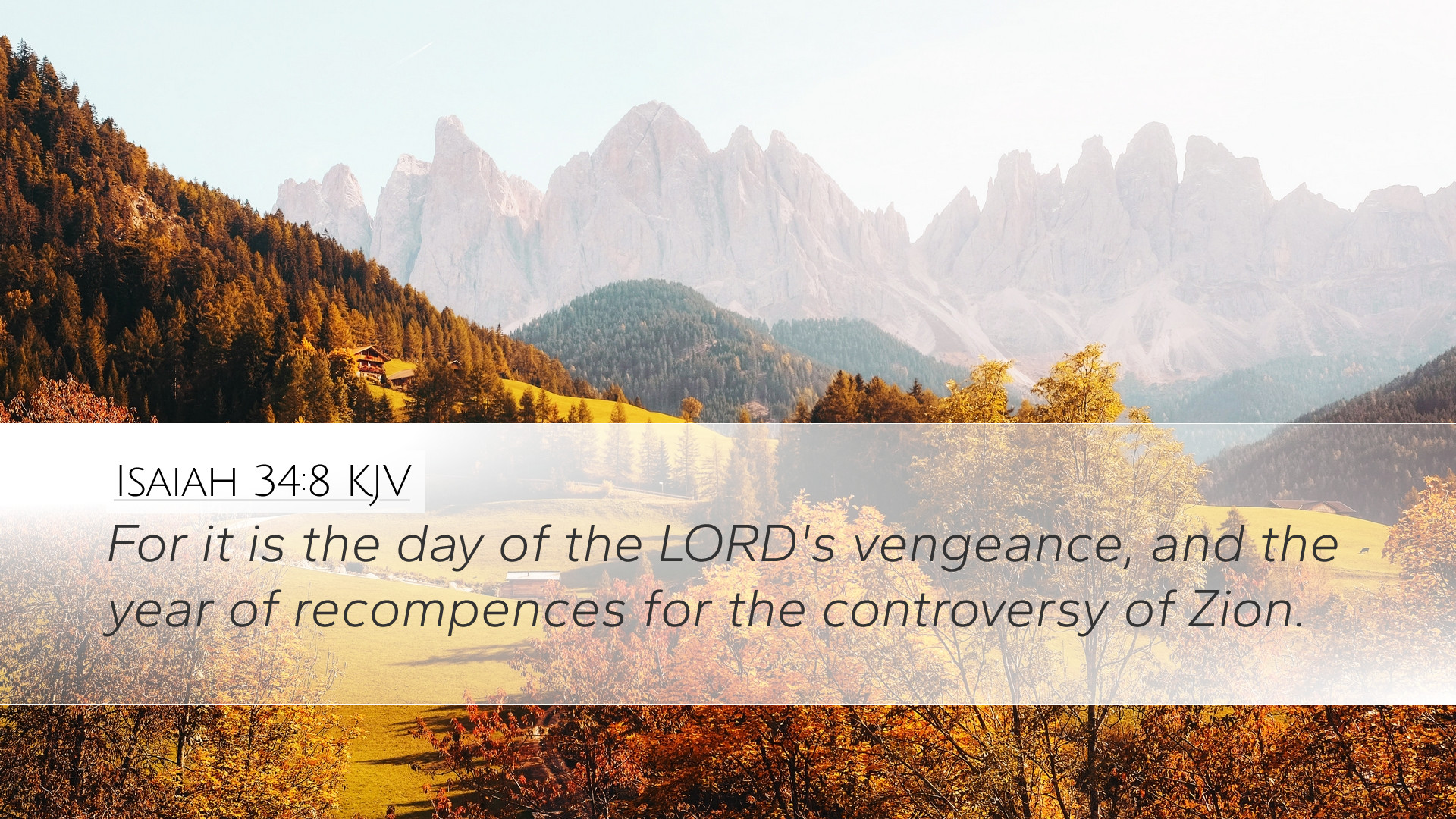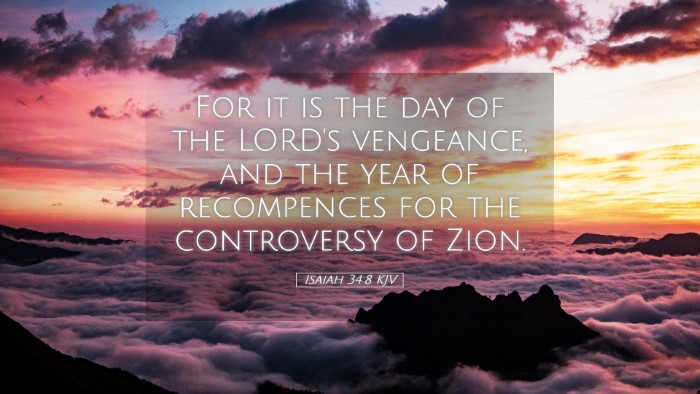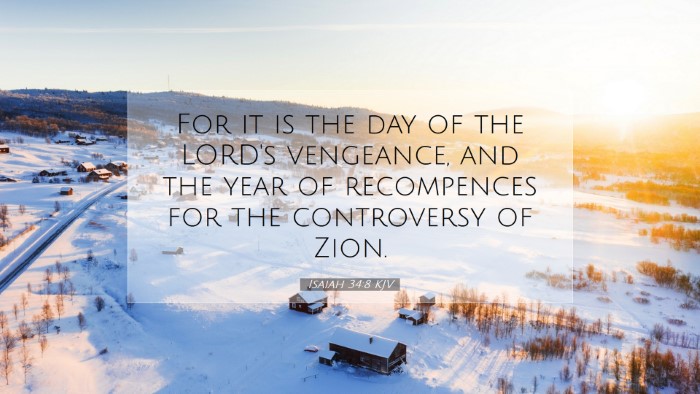Commentary on Isaiah 34:8
Isaiah 34:8 reads: "For it is the day of the LORD's vengeance, and the year of recompense for the controversy of Zion." This verse encapsulates the theme of divine justice and retribution against those who oppose God's purposes and His people. The imagery and implications are profound and warrant careful exploration.
Contextual Background
To fully grasp the message of Isaiah 34:8, it is essential to understand the context in which Isaiah prophesied. This chapter signifies a stark judgment against the enemies of Israel, reflecting upon the broader eschatological themes of justice found throughout the book of Isaiah.
-
Historical Context:
Isaiah lived during a tumultuous period of Israel's history, marked by political strife and the looming threat of Assyrian and Babylonian power.
-
Thematic Elements:
The themes of judgment, restoration, and divine justice permeate Isaiah, serving as a reminder of God's sovereignty over the nations.
Verse Analysis
This verse presents several theological themes worth noting:
-
The Day of the LORD:
Matthew Henry emphasizes that the "day of the LORD" signifies a time of divine intervention when God decisively acts against His adversaries. This theme is prevalent throughout the prophetic literature, often depicting a climactic confrontation between divine holiness and human rebellion.
-
Vengeance and Recompense:
Albert Barnes notes that the concept of vengeance in this verse is closely tied to the principle of divine justice. God's vengeance is not arbitrary; instead, it is a measured response to the injustices inflicted upon Zion, the city of God.
-
Controversy of Zion:
Adam Clarke highlights that the term "controversy of Zion" refers to God’s defense of His chosen people against their oppressors. Zion represents not only Jerusalem but encapsulates God’s covenant promise to His people. The term evokes the idea of legal dispute where God steps into adjudicate on behalf of His people.
Theological Reflections
The implications of Isaiah 34:8 extend beyond its immediate historical context, offering rich theological reflections relevant for contemporary application:
-
Divine Justice:
The assertion that the day of vengeance is coming underscores God’s unwavering commitment to justice. It serves as a reminder that no injustice goes unnoticed or unaddressed by the Almighty.
-
The Assurance of God's Protection:
For the faithful, this verse serves as a source of comfort. It reassures believers that God is aware of their struggles and will ultimately vindicate His people. Understanding the nature of God's justice can embolden silenced voices and invigorate faith amidst trials.
-
The Role of the Church:
This passage compels the church to engage in advocacy for justice. As followers of Christ, the church inherits the mission of upholding divine righteousness and standing against oppression, reflecting God's concern for Zion in a modern context.
Application for Believers
As Christians navigate their faith in a complex world, there are several practices encouraged by the themes of this verse:
-
Hope in God's Justice:
Believers are encouraged to hold firm to the hope of God’s ultimate justice in the face of pervasive injustices. This hope fosters resilience and patience among communities suffering from oppression.
-
Advocacy for the Oppressed:
Isaiah 34:8 incites us to take action against the injustices we see around us. Christians are called to advocate for those who are marginalized, imitating God's design for a just society.
-
Prayer for Peace:
A commitment to pray for peace and for God's will to be accomplished in the world is vital, as believers align themselves with God’s redemptive plan for humanity.
Conclusion
Isaiah 34:8 serves as a powerful reminder of God’s sovereignty and righteousness in the affairs of humanity. The prophetic outlook of this verse illuminates fundamental truths about divine justice and God's covenantal relationship with His people. Thus, it encourages deep reflection among pastors, students, theologians, and scholars, offering insights that can foster both personal growth and corporate action within the church.


